Tulsa World said;
One of the biggest stories of 1986 was the so-called “Lettergate” scandal, which toppled Mayor Young’s administration. After various public officials, including Young, wrote letters urging leniency for the Smiths, two subsequent letters with then-U.S. Attorney Layn Phillips’ named forged on them surfaced. The forgeries suggested Phillips would release names of Democratic officials who had written leniency letters in an effort to damage them politically.
The forgeries were linked to a typewriter and letter found in Young’s office. Young and his staff denied any involvement, and a federal grand jury and special prosecutor left the case unresolved. But the incident no doubt led to the defeat of Young by political newcomer Tom Quinn in a March primary.
The Daily Oklahoman said:
Water & Sewer Commissioner, Patty Eaten, then filed for mayor as an Independent and the left was officially split. 17 other independants also ran. Political novice Dick Crawford was elected mayor in the general election, beating out 19 other candidates.
TULSA Republican Dick Crawford won Tulsa’s mayoral election Tuesday night, defeating independent candidate Patty Eaton and 18 other challengers.
With 180 of 188 precincts reporting, Crawford had 44,434 votes to Eaton’s 32,986, in unofficial results. Crawford will take the mayor’s oath May 6, replacing incumbent Terry Young.
Democratic nominee Tom Quinn received 10,589 votes. The 17 other candidates running for mayor polled about 4.5 percent of the vote.
Eaton conceded defeat as she addressed supporters at the Westin Hotel here. She said she had known from the start it was “risky business” to abandon her race for re-election as water and sewer commissioner to run for mayor.
“We had a lot of things going for us, but then we also had a lot of things going against us,” Eaton said.
Years later, the Tulsa World wrote a decent summary…
The letter that changed an election
Somewhere in this city some sentimental fool has kept a T-shirt, now 16 years old, with “I Ran for Mayor of Tulsa” printed on the front.
If you can find it in the bowels of your closet you hold a souvenir from perhaps the wackiest city election season in Tulsa history.
The general election of 1986 – an event held, quite aptly, on April Fools’ Day – was a testament to gonzo political pundit Hunter S. Thompson’s axiom: “When the going gets tough, the weird turn pro.”
Generally it is wise to let bygone elections be bygones and if ever there was a political season that deserved eighty-sixing in the memory it probably is the political season of ‘86. But with the 2002 city primary and general elections approaching, it’s worth revisiting a moment in city history when voters were especially tuned into city elections.
It took the Tulsa County Election Board 88 hours to print a two-sided ballot for the general election that featured 20 candidates for mayor and 27 more candidates for five other city offices.
This year we will have a smaller pool of candidates upon whose messages we can focus. Sixteen years ago voters had trouble understanding messages because too many candidates were shouting them. Candidates of almost every age and from every walk of life had descended on the ballot like a swarm of locusts.
That year re-election for first-term Mayor Terry Young, a Democrat, had appeared to be a cakewalk. Then came “Lettergate,” a bizarre scandal-ette that erupted a month before the primary. A mysterious letter, later proved to be forged, was given to the Tulsa Tribune by a Young political consultant.
The letter implied that then-U.S. Attorney Layn R. Phillips had played politics several weeks earlier when he released names of prominent Democrats who’d written letters to a federal judge urging leniency for ex-state Sen. Finis Smith and his wife, Doris. The Smiths had been convicted on several federal charges and were awaiting sentencing.
When the story broke, Phillips asked the FBI to investigate. The letter, carrying Phillips’ forged signature, was traced to a typewriter in Young’s offices. Young said he knew nothing about the origin of the letter. A federal grand jury investigated.
While no charges were ever filed, the leniency letter and the letterhead scandal cost Young the election. He lost the Democratic primary by 1,479 votes to political unknown Tom Quinn, owner of a sign company, who acknowledged that the primary was the first time he had ever voted in a city election. The Republican nomination went to another political novice, Dick Crawford.
At the time, the City Charter allowed Independent candidates to file up to 10 days before the general election. Eighteen Independents seized the opportunity to run for mayor and 18 Independents jumped into other city races.
Shortly before the election, then-Election Board Secretary Harmon Moore paused in his hand-wringing to observe: “We will conduct the election April 1. At this point I don’t know how, but it will go on one way or the other.”
Moore didn’t sound at all convincing. He earlier had lamented that he did not know whether to expect 25,000 voters because of apathy and disgust over the political circus, or 150,000 voters because of high interest. (Voter turnout hit a record for a city election at 97,901).
On Election Day, voters were presented with a bewildering array of 47 candidates on the ballot. Included were two Kings, two Quinns, six high school seniors, “a Tom, a Dick but no Harry,” (as noted in a Washington Post story about the fluky election) and a retiree calling himself the Candyman, who gave out sweets to anyone nice to him.
A candidate nicknamed “Night Train,” also campaigned but never got to fulfill his promise of “restoring good, moral Christian ethics to City Hall.”
Some candidates were serious contenders; others, obviously, were jokes waiting to be elected. A few entered races because Democratic and Republican nominees for office were perceived to be political flukes who were ill-prepared to run a large city with complex problems. The front-runner among the mayoral Independents was three-time Water and Sewer Commissioner Patty Eaton, a Democrat.
After the primary, Eaton abandoned her bid for a fourth term to that post, and threw her hat into the mayor’s race. She lost the hat and the election by 12,265 votes to Crawford. Quinn ran a distant third. The six high school students received several thousand votes in a turnout that was so large many voters had to cast their ballots while standing on sidewalks outside the polls.
On Election Day, a clown in big shoes waddled the streets of downtown Tulsa wearing a placard that touted a candidate. Overhead, a plane swooped through the skies trailing another candidate’s message. A car equipped with a public address system blared still more recommendations. A local radio personality attracted the attention of the New York Times by urging voters to elect him as a write-in candidate. And T-shirts were hawked, emblazoned with the message: “I Ran for Mayor.”
Read the full story at the Tulsa World: http://www.tulsaworld.com/archives/how-bad-it-was/article_39df5cec-db61-5fff-b210-19f79aa13463.html

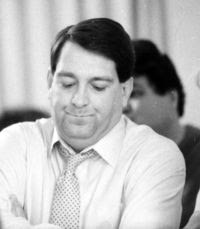





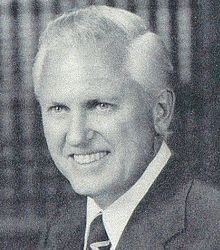
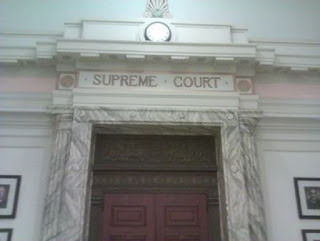

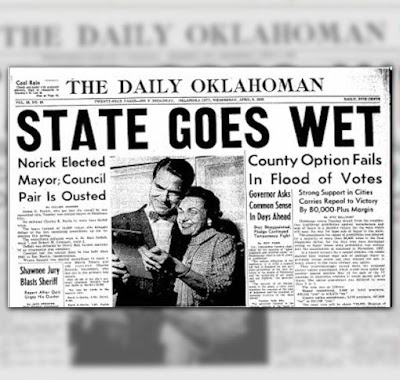
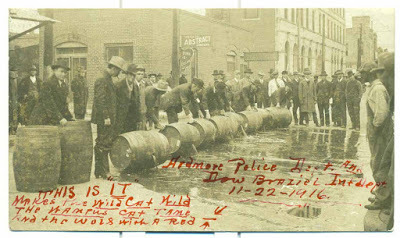







 RSS Feed
RSS Feed
